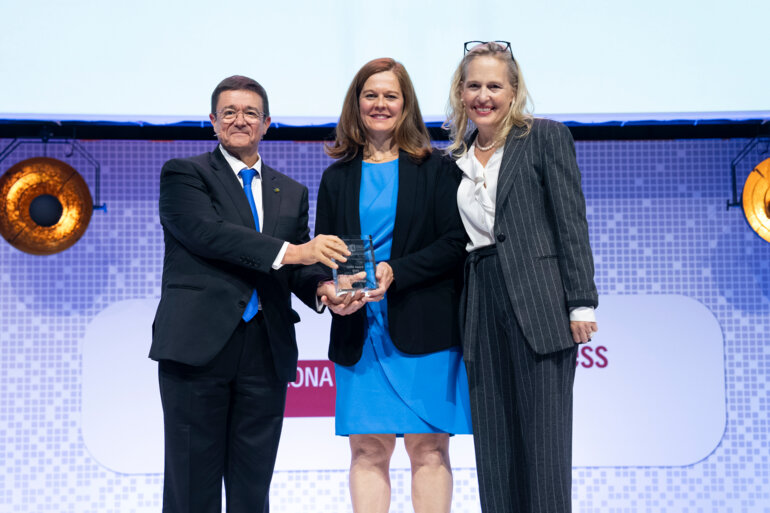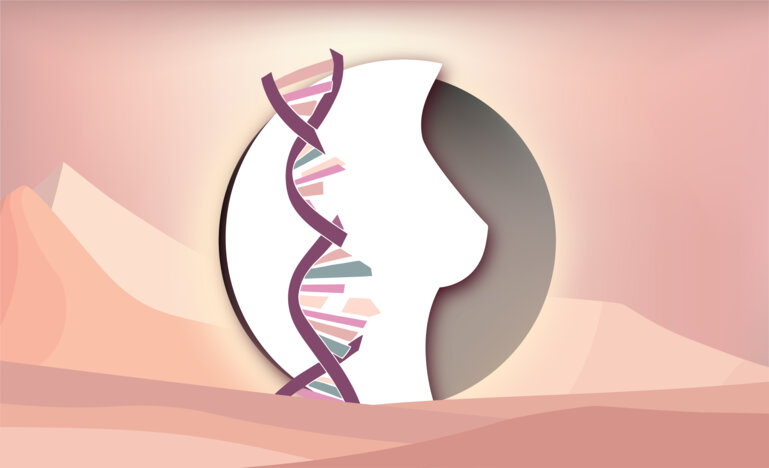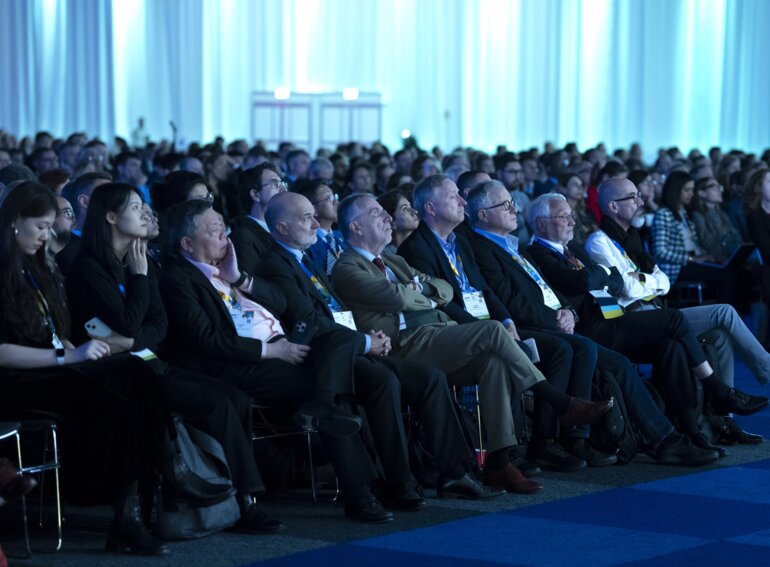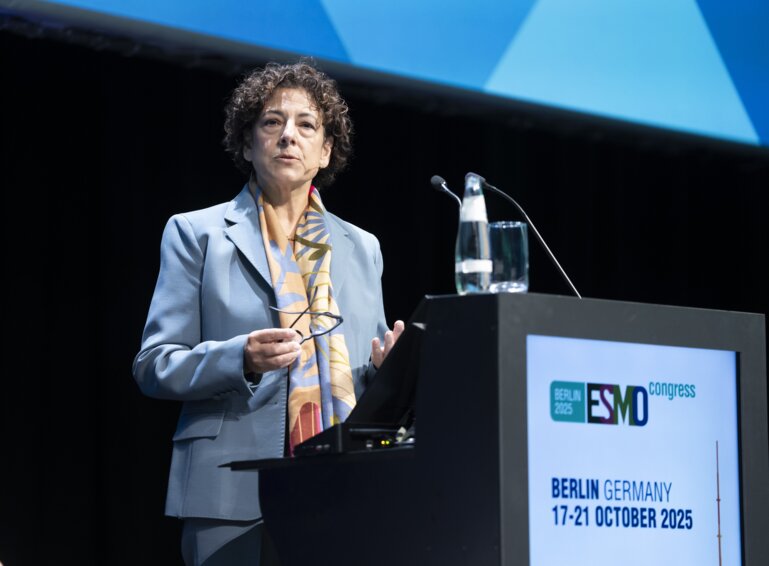According to Prof. Ann Partridge, 2024 ESMO Awardee, young patients with breast cancer have unique needs that must be addressed to achieve better outcomes
Prof. Ann Partridge from the Dana-Farber Cancer Institute, Boston, MA, USA, will be presented with this year’s ESMO Award during the ESMO Congress 2024 (Barcelona, 13–17 September) for her outstanding work on improving the treatment, survivorship and psychosocial issues facing young patients with breast cancer. She has been a very active researcher in the area and helped increase awareness of the needs of adolescents and young adults (AYA) by the oncology community. Here she discusses her key contributions to the field of supportive care in AYA with cancer, and the way ahead.
What are your key contributions to supportive care in AYA with cancer?
AYA with cancer have unique issues, both medically, psychosocially and financially, and often face greater challenges in long-term survivorship than older people. These issues can have real implications on emotional health and cancer outcomes. AYA can also face issues with financial toxicity as they have not had time to save much money; this can impact their ability to pay for their treatments.
My key contribution has been to highlight the issues that these young people experience to help improve their outcomes. Although I focus on breast cancer, the importance of addressing features of the disease or the experience of having cancer diagnosed at a young age can be applied to all AYA with cancer.
Increasing awareness of the fertility of young patients as a component of cancer care is an area in which I have focused. Fertility was often under appreciated by the medical profession. People with hormone-sensitive breast cancer are recommended to take endocrine therapy for 5 to 10 years, for instance, which can put them into menopause before they have had the chance to have children. This means that their window of opportunity to have a child closes during critical child-bearing years, which is devastating for these women. It is therefore not surprising that fertility is a major concern in young patients with cancer.
Fertility concerns also have an impact on survival potential. Indeed, our research has shown that a substantial proportion of young breast cancer survivors were so anxious about fertility that they were less likely to initiate endocrine therapy or were less adherent than young patients without fertility concerns (Cancer. 2021;127:2888–2894).
This research culminated in the POSITIVE trial, which I consider to be the most important piece of work to which I have contributed (N Engl J Med. 2023;388:1645–1656). The study was a team effort, led by Olivia Pagani from Switzerland, through the International Breast Cancer Study Group; I was the lead in the United States. When we designed the trial, I highlighted that women would not be able to have children during the 5 to 10 years of endocrine therapy. The POSITIVE trial prospectively studied the safety and feasibility of interrupting endocrine therapy for up to 2 years to attempt pregnancy in young women with previous breast cancer and then return to finish a full course, depending on the extent of disease and risk of recurrence. After a 3-year follow-up, the study showed that temporary interruption of endocrine therapy did not increase the short-term risk of breast cancer events. The majority of women who were on the trial got pregnant and had a live birth. In addition, a well-matched comparison to an external historical control cohort demonstrated that they appeared to do no worse, and if anything, slightly better than controls. It is very important that oncologists and reproductive health doctors know about these data.
More recently, we have demonstrated the safety of reproductive endocrinology technology, including IVF, in young women with hormone-sensitive breast cancer. This study demonstrated that there was no increase in the risk of cancer recurrence, at least in the short term, or adverse effects on the pregnancies or babies. However, we need to follow up these women for longer.
How has supportive care changed for young cancer survivors and what are the improvements?
Over the past decade, supportive care for young cancer survivors has improved around the world with a growing number of programmes and research on AYAs with cancers. Generally, breast cancers that occur at a young age were treated very aggressively as patients are more likely to present at an advanced stage with a more aggressive tumour than those who are older (Am Soc Clin Oncol Educ Book. 2022;42:1–12). Furthermore, clinicians focused on survival and tended to overtreat, even though young patients do not appear to have worse outcomes than older ones after controlling for stage, particularly in HER2-positive cases (J Clin Oncol. 2013;31:2692–2698). Treatment is now being de-escalated and tailored to the individual.
The approach of de-escalating treatment has also been seen in other cancers, such as leukaemia. However, of all the age groups, AYA with leukaemia are the least compliant with their oral therapies. Providing these young patients with supportive care can help them get through their treatment better, improve adherence, and ultimately do better in the long run.
What are the most important next steps in research for supportive care in young people with cancer?
The most important next step is to continue researching the biology of AYA cancers. Currently, we are investigating the reason that young people get more aggressive tumours. We need to have a better understanding about whether the young should be treated more or less aggressively than older patients. We also need clinicians to recognise the unique survivorship issues that are faced by AYA with cancer, such as fertility, psychosocial issues and financial toxicity.
Partnering with the next generation of researchers and clinicians presents challenges and opportunities for improving AYA cancer outcomes. Governmental and nongovernmental organisations, medical foundations and partners in industry must focus on the issues that AYA with cancer experience, and clinical trials need to be better designed to accommodate AYA. For example, clinical trial endpoints should include markers of ovarian reserve as there is a lack of data on the effect of treatment on ovarian function. It is important that AYA with cancer are seen as a separate group with unique needs, and focus studies will enable further investigation in this population.
Programme details
Partridge AH. ESMO Award lecture: Addressing the unintended consequences of cancer care. ESMO Congress 2024
Opening Session, 13.09.2024, h. 12:00 – 13:45, Barcelona Auditorium – Hall 2








